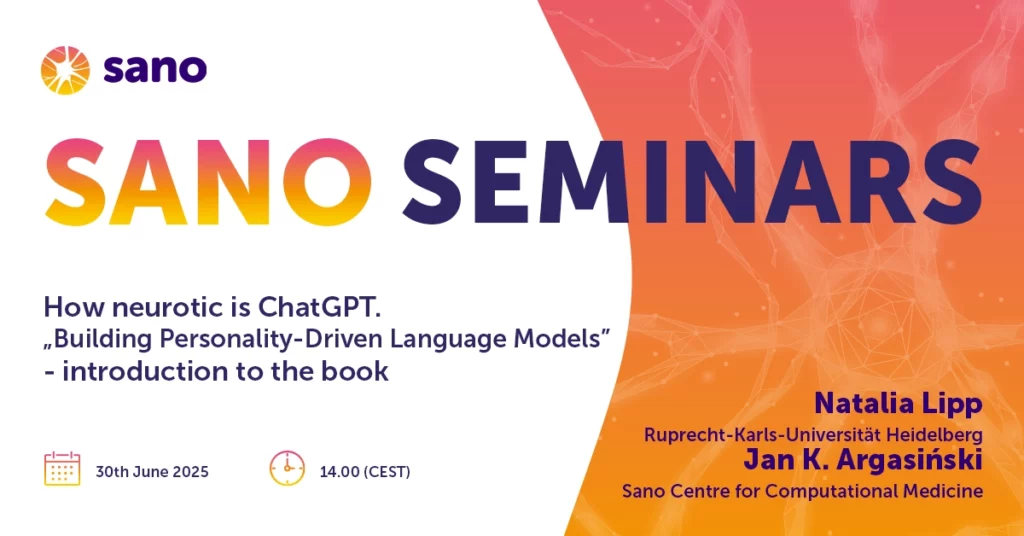167. How neurotic is ChatGPT. “Building Personality-Driven Language Models”- introduction to the book.
Jan K. Argasinski and Natalia Lipp
An Introduction to the book Karol Przystalski , Jan K. Argasiński, Natalia Lipp , Dawid Pacholczyk Building Personality-Driven Language Models springer.com
Abstract:
We invite to a seminar dedicated to the recently published book “Building Personality-Driven Language Models: How Neurotic is ChatGPT?” — an interdisciplinary exploration of how psychological principles can shape the tools of artificial intelligence.
In this session, two of the book’s authors, Natalia and Jan, will present the core ideas behind the project, introducing key concepts such as the integration of personality traits into large language model based systems, and the use of psychological assessments to mimic properties like extraversion, openness, or emotional stability in AI agents. The book bridges psychology, philosophy, business, and computer science to examine how human-like AI can transform industries from gaming to healthcare.
Although this publication emerged as a side project, it is rooted in both authors’ ongoing work and influenced by their affiliation with Sano – Centre for Computational Medicine.
About the authors:
Natalia earned her PhD in Social Sciences – Psychology from Jagiellonian University in Kraków, Poland. For her doctoral thesis, she conducted three experimental studies that revealed how autonomous arousal and visual imagination can impact performance on motor tasks in VR. Her interests lie in exploring virtual reality as a training tool, embodiment, and psychophysiology. She is passionate about bringing technology and psychology together. Currently, she’s working as a postdoctoral researcher at Ruprecht-Karls-Universität Heidelberg, developing VR-based interventions for personality development.
Jan is a Research Team Leader at Sano Centre for Computational Medicine and an Assistant Professor at the Institute of Applied Computer Science, Jagiellonian University. His interests include artificial intelligence, computational neuroscience, affective computing, and VR/AR.
Get to know Jan Argasiński and Natalia Lipp and learn more about their work.


